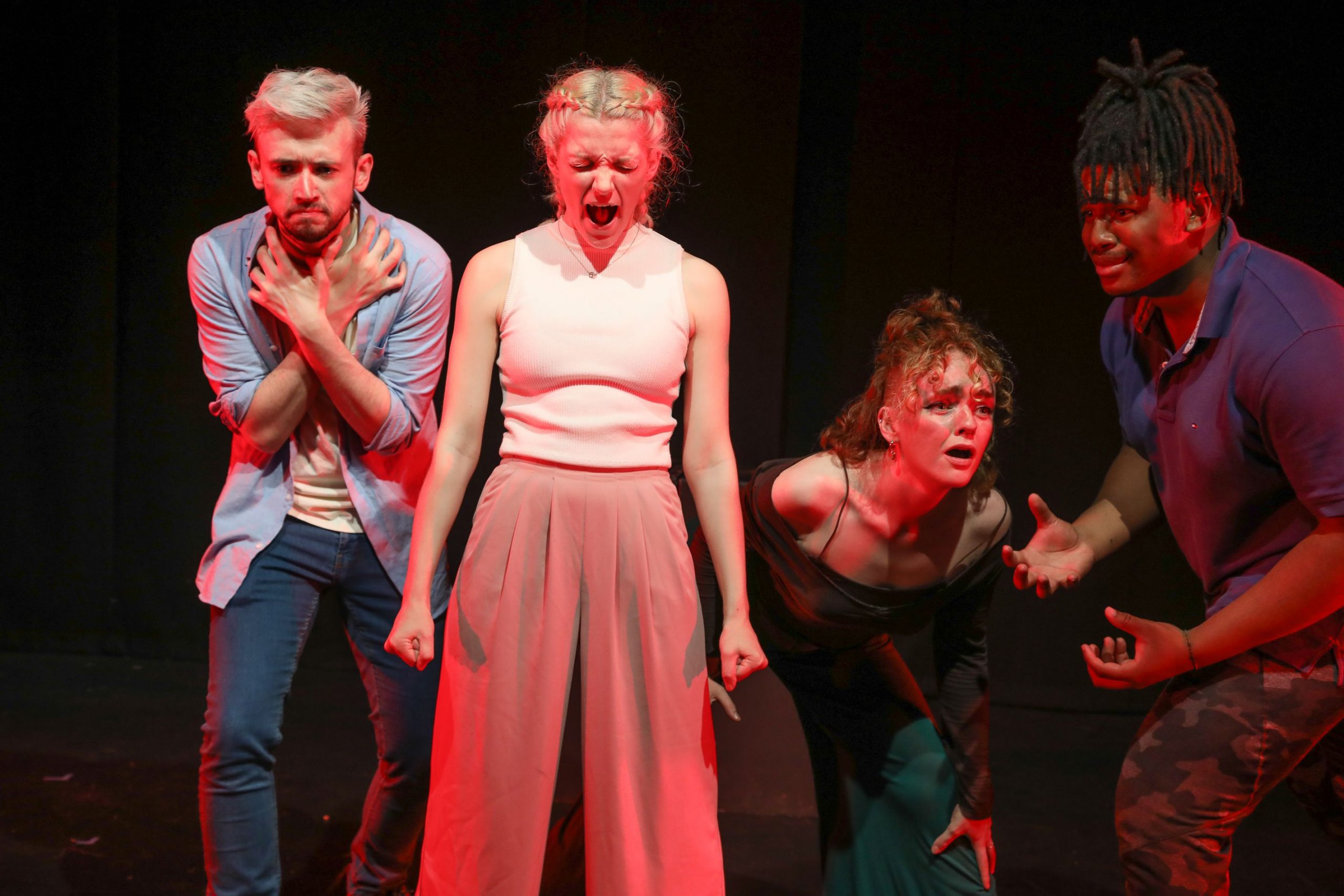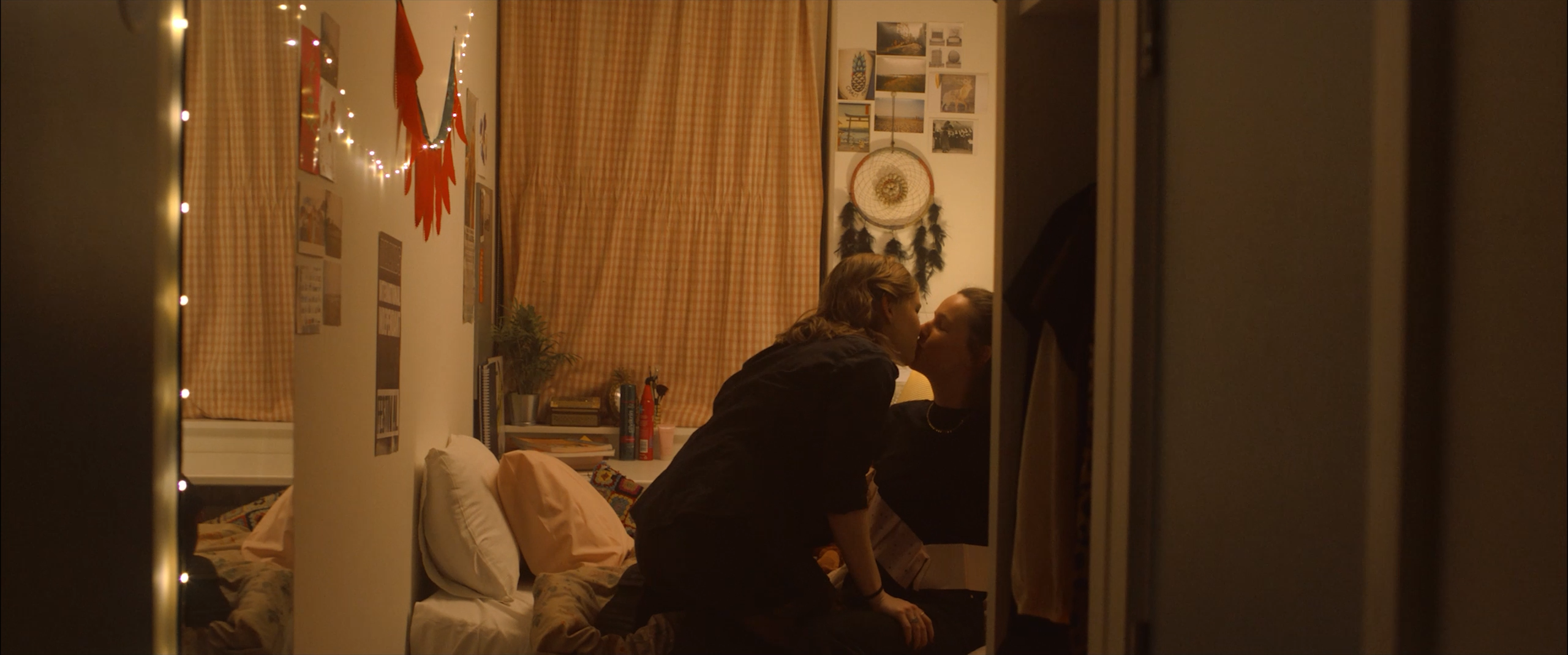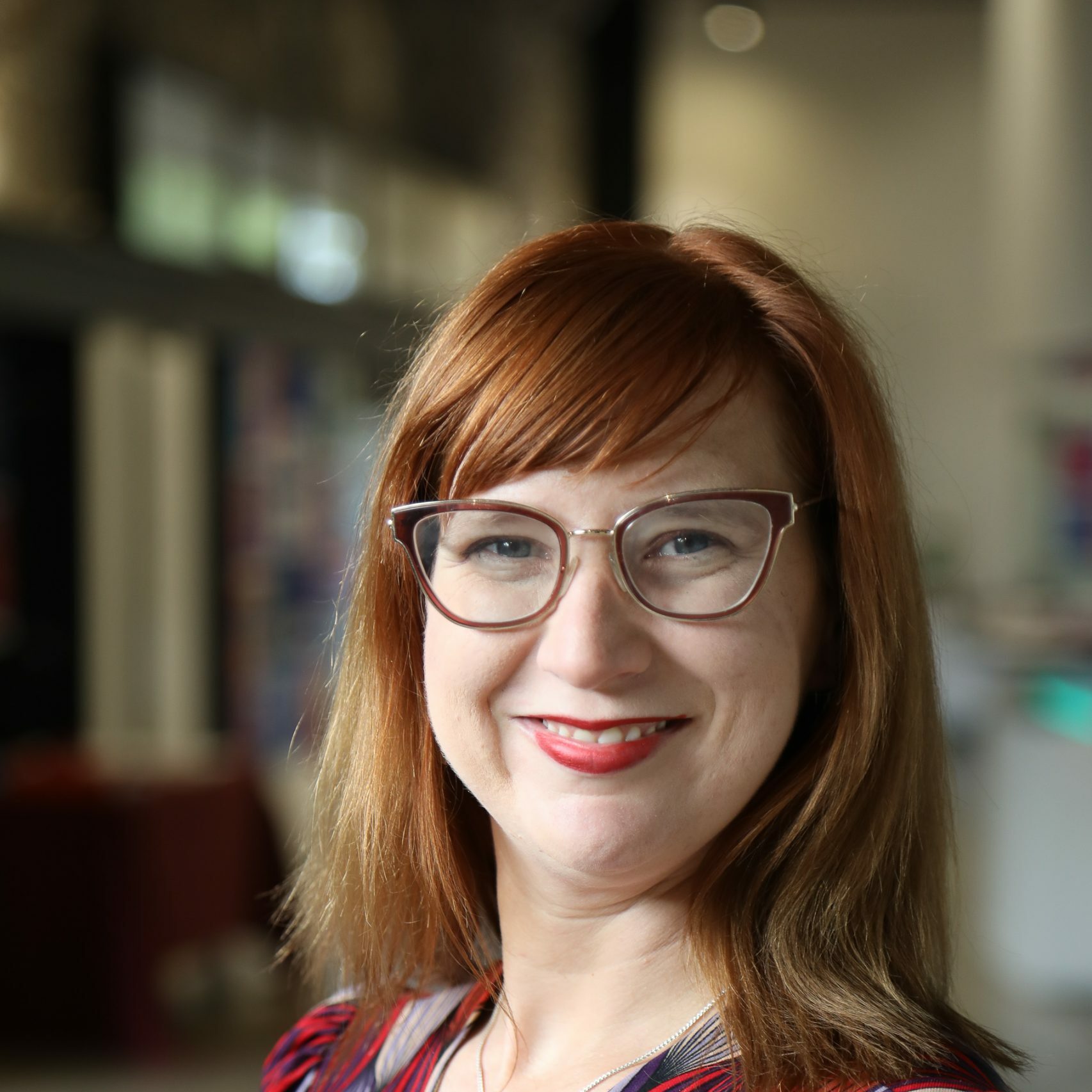
In 2014, I received a phone call from an unfamiliar voice, University of Galway Psychology lecturer Pádraig MacNeela. He had just completed a research report in partnership with Rape Crisis Network Ireland entitled Young People, Alcohol and Sex: What’s Consent Got To Do With It? He felt the findings were important in terms of the complex ways in which the young people in the study interpreted the nuance of non-consenting sexual scenarios. He was aware, however, that the research report was unlikely to reach the audience that mattered most—young people. His request was simple, or so he thought, could I make a play out of this research report?
That phone call initiated an eight-year and running collaboration between myself and MacNeela. Together with researcher Siobhán O’Higgins, a sexologist with a background in Health Promotion, we co-founded Active* Consent, a consent education programme which supports young people and those important to them (teachers, parents, college staff and policy makers), in building knowledge of consent as a key component of positive sexual health and well-being. We create original Irish data-led consent education training resources (workshops, eLearning modules, drama, videos and social media campaigns) for colleges, secondary schools and sports organisations. We do so in consultation with young people and other stakeholders, evaluating our resources and updating our data on an ongoing basis. Funded by a variety of sources (1), we have grown to a national programme with international ambition and created the world’s first publicly funded national consent hub in 2021, funded by the Government of Ireland.
Key to Active* Consent’s uniqueness nationally and internationally is that we consider experimentation with creative tools (including theatre, film and social media) to be essential in making sense of findings on consent behaviours amongst young people, and in communicating the magnitude and significance of these findings to a wider audience.
What does this creative research look like? It looks leading out on the collective creation of a data-based play (originally entitled 100 Shades of Grey) with ensembles of students and alumni who write, rewrite, stage and perform the versions of this play that have emerged over the years. There is now a third-level version, The Kinds of Sex You Might Have At College, which toured nationally in 2019–2020 and across the island of Ireland this past autumn. Our adapted secondary school version of the play, How I Learned About Consent, premiered in October.
Creative research can also look like a short video, distilling through storytelling the idea that consent is for everyone—all genders, relationships, sexualities—written by myself, cast with Drama and Theatre Studies students and alumni, and produced by Tiny Ark.

It also looks like our interdisciplinary range of experts developing a signature definition of consent; ‘Consent is OMFG (ongoing, mutual and freely-given).’ This definition originates from a long process of examining Irish law on consent, alongside our own findings about passive and often highly gendered consent practices (where individuals frequently report expressing consent by simply not saying no, or stopping their partner, rather than actively or affirmatively communicating, and expressing different beliefs about gender roles in progressing sexual encounters). Throughout the process, we consulted with young people in our classrooms and focus groups.
The phrase, ‘Consent is OMFG’, is intentionally pithy, playful and multi-layered yet clear. We crafted this definition to be memorable (to spring to mind when you might need it most) and accessible (“consent” being the only specialised term).
Creating a research-backed and socially relevant phrase is an interdisciplinary team effort. In order to increase skills and understanding of positive and active sexual consent, we must apply traditional research skills—reading, writing and consultation with stakeholders—and secondly, an openness to creativity as an intuitive, rigorous and open-minded process. The result is a phrase that accurately represents our message while also exhibiting what U.S. theatre director and theorist, Anne Bogart terms ‘resonance’, an energy that “ripples and radiates.”(2) We all agreed and knew intuitively that it worked, that it landed.
Attention to language on this microscopic level felt to me like a skill fit for a playwright in terms of the visceral urgency and clarity necessary from each turn of phrase. This analogy has helped me to understand my evolving and expanding role in Active* Consent’s Creative Arts and Communications strand since 2019. However, my job is not to dwell only on the precision and performativity of language. Our team is constantly thinking about storytelling across multiple communication mediums—our workshops, our eLearning modules, our play, our social media, our research reports, our training sessions. We continue to test and creatively evaluate our means for practically disseminating our message. Is information best gathered through a question session or social media poll? Is a story best performed through a play or a short film that extends our reach?
We stay active on all these fronts because we believe that it will take more than one experience of an intervention based on our research to produce the changes we seek in Irish society and beyond; that is, more positive sexual experiences and less sexual violence and harassment. Creative arts are at the heart of this integrated and interdisciplinary working model.

As my experiences at the centre of Active* Consent show, creativity opens new vistas of possibility, but also hard work and new and ever deepening searches for resonance. We cannot think of creativity as a once-off, or a reliable formula, or the job of a single individual. Interdisciplinary collaboration is rarely the satisfying process we encountered in landing on ‘Consent is OMFG’. On that day, we were fortunate to feel the benefit of our different perspectives settling into one coherent and memorable phrase. Usually, the process requires more translation amongst us as a team and with our partners and stakeholders. Translation means that there will inevitably be misunderstandings and failures, but as a team, we remain committed to not only creativity, but the multiple languages of the creative arts—as the meeting place for this ongoing effort and experimentation.
Read more about Active* Consent in the research impact case study, “‘I didn’t know it was OK to say NO:’ transforming a generation’s attitude to sexual consent”.
Visit the Active* Consent website here or follow us on social media @ActiveConsent.
Funded by Lifes2Good Foundation, Rethink Ireland, University of Galway, the Department of Further and Higher Education, Innovation and Science, the Department of Justice and others.
P.4. Bogart, Anne (2021). The Art of Resonance. Bloomsbury.
Profiles

Charlotte McIvor is a Senior Lecturer and Head of Discipline in Drama and Theatre Studies at University of Galway. She is the author of numerous publications including Migration and Performance in Contemporary Ireland: Towards A New Interculturalism and the co-editor of The Methuen Companion to Interculturalism and Performance (with Daphne P. Lei). Her work has also appeared in Theatre Research International, Theatre Topics, Modern Drama, Irish University Review, Irish Studies Review, and multiple edited collections. In addition, she is a co-lead of the Active* Consent Programme, an Irish national-level initiative funded by Lifes2Good Foundation, Rethink Ireland and the Government of Ireland among others which supports young people and those that are important to them in building their knowledge of consent through original Irish data-led consent education research and resources including a touring original play directed by McIvor (adapted for college and secondary school audiences).
She is the treasurer of ATHE, the Association for Theatre in Higher Education and was a co-organiser of IFTR Galway 2021 and currently serves as an ex-officio member of the IFTR Executive Committee. She also serves on the board of Baboró, the international arts festival for children, and has previously served on the board of the Galway Theatre Festival and Irish Modern Dance Theatre